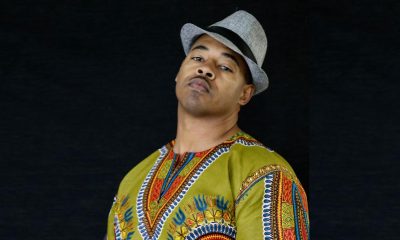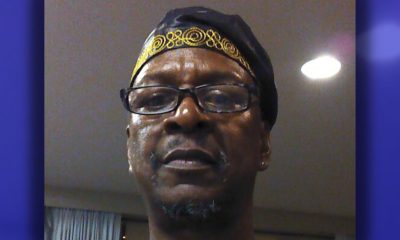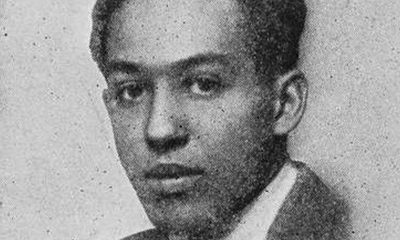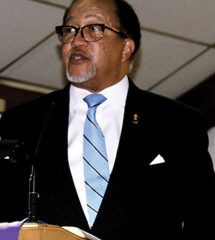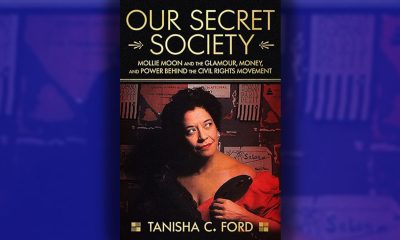#NNPA BlackPress
A CLOSER LOOK AT: Dr. Willie. W. Herenton: ‘We’re heading back to City Hall’
NEW TRI-STATE DEFENDER — Dr. Willie W. Herenton recalled the days when he attended segregated public schools and was forced to sit at the back of city buses because of the color of his skin. As the South Memphis native reflected, he sat back in his chair and paused before explaining how it all came full circle. The first African American to serve as superintendent of those once-segregated schools, Herenton (in 1991) beat incumbent mayor Dick Hackett, becoming the first African American elected to serve as Memphis’ mayor.
By Erica R. Williams
Updated: Profiles of all three of the leading candidates for Memphis Mayor are now live online. Excellent reporting and writing by Erica R. Williams. Click to access the candidate of your choice:
Dr. Willie W. Herenton recalled the days when he attended segregated public schools and was forced to sit at the back of city buses because of the color of his skin. As the South Memphis native reflected, he sat back in his chair and paused before explaining how it all came full circle.
The first African American to serve as superintendent of those once-segregated schools, Herenton (in 1991) beat incumbent mayor Dick Hackett, becoming the first African American elected to serve as Memphis’ mayor.
“It’s one of my biggest accomplishments,” said Herenton, whose 17-year tenure made him Memphis’ longest serving mayor. “To rise up through rejection, discrimination, racism and poverty and then to be elected to the highest position in Memphis and have the power to elevate other qualified African Americans to positions of leadership.”
Now, Herenton says, “God’s not done” with him yet. He wants to be re-elected October 3.
“Oh, we’re heading back to City Hall,” he often proclaims at rallies such as the recent “Women for Herenton” event that boasted more than a thousand women Herenton is counting upon.
“When I saw more than a thousand women attend my event and support my candidacy that day it was affirmation from what I already sensed,” he said.
Thinking back upon his time as mayor, Herenton notes among accomplishments his contribution to the transformation of public housing, where people were living in “such degradation.”
“And when I was campaigning (in ’91), I said if God enlarges my territory I will do something about this; and we did.”
In 2009, the U.S. Dept. of Housing and Urban Development used the work done by the Herenton administration as a model for the nation. Hundreds of millions of dollars were secured under the federal Hope VI Grant program, which was a national plan to eradicate severely distressed public housing.
“If you look at LeMoyne Gardens, it didn’t look like what it looks like today. We tore all of that down to make it better,” Herenton said, referencing the old South Memphis public housing development that was replaced by a mixed-income community and renamed College Park.
Some argue that the HOPE VI program displaced poor families to make way for people with higher incomes. Herenton cites its benefits to Memphis.
“Those facilities were once unfit for human habitation and we made them livable. I’m proud of that.”
Clearly happy that he was able to aid in the transformation of the area where he once grew up in poverty, Herenton noted that he graduated from LeMoyne-Owen College (LOC), only a few feet away from that transformation.
After graduating from LOC, Herenton obtained a master’s degree in Education from the University of Memphis (formerly Memphis State). He spent the early years of his career teaching before serving as a principal and district administrator. He became the superintendent of Memphis City Schools in 1979.
“During my tenure, we made available about $175 million to the Memphis school system that we were not required to do,” he said. “But because my background is in education I felt we had to do it.”
Herenton later founded the W.E.B. Du Bois Consortium of Charter Schools in Memphis and Atlanta; but two of the six schools have closed due to poor performance.
Today, the city’s budget doesn’t allot any funding to K-12 education and Herenton believes the city should do more. And, says Herenton, assistance should extend beyond city funding.
“The root cause is poverty, family disintegration, racism and classism. And until we begin to tackle that fundamentally, we will always have the difference in academic achievement in race and class,” he said. “It’s the ugly reality.”
Poverty abatement and crime reduction are high on his agenda. Additionally, his platform includes creating an “attractive business climate” to grow the city’s tax base, tackling juvenile justice reform, and growing minority-owned businesses. And to the degree his platform mirrors elements of the campaigns of any of his opponents, Herenton said he would employ tougher tactics to get the job done.
Herenton and Strickland have said they would increase the city’s complement of police officers, with Herenton labeling Strickland as weak on crime. Strickland’s comeback has referenced Herenton as mayor in 2006, the year Memphis was recognized as leading the nation in violent crimes.
Crime, Herenton said, is connected to other problems and is a result of a hopeless and prevalent mindset.
“When I’m elected mayor – and I will be elected mayor – I don’t have the power to stop people from killing each other, but I believe my presence as mayor is going to be symbolic to many of the African-American young people who walk and drive the streets of Memphis who don’t have a role model.”
Herenton said he can relate to the citizens of Memphis, most of who are African Americans
“I’m everywhere – at the McDonald’s, Piccadilly and walking the streets of Memphis. I meet a lot of people, old and young. And they’ve told me that I’ve got to come back.”
Acknowledging a “very colorful career,” Herenton said, “And I’m not proud of everything, but when people see me they tell me that when I was mayor we had this city on a tight grip and that’s what we need again.”
Herenton timed the public announcement of his mayoral bid to coincide with the commemoration of the day Dr. Martin Luther King Jr. was assassinated in Memphis.
“All of this was a part of my strategy,” he said. “I marched with Dr. King and it was my strong admiration for him that compelled me to become an activist.”
He credits the legacy of Dr. King for his desire to run for re-election.
“Fifty years after Dr. King’s death, I watched what was going on in my city. Dr. King had a dream that was interrupted. I, too, had a dream for the city of Memphis that was interrupted because of my resignation during my fifth term.”
During his final years as mayor, the FBI launched an investigation, accusing him of a faulty real estate deal. Herenton has denounced the investigation calling it “targeted, unfounded, and ultimately unsuccessful.” No charges were filed.
Herenton took a break from public service after unsuccessfully taking on Ninth District incumbent Congressman Steve Cohen in 2010 and garnering only 20 percent of the vote. The former mayor said he’s had time to reflect and now wants to re-dedicate himself to the agenda he started.
The to-do list includes improving the city’s infrastructure.
“Before I became mayor, our downtown was dead,” he said. “The public private partnerships that we were able to bring into reality – the Peabody Place, the relocation of AutoZone Park, FedExForum, we were able to do all that.”
At 79 years old, Herenton said he’s up for the challenge and that he expects to be re-elected with a voter turnout higher than it has been in the past.
Open about his distrust of the Shelby County Election Commission, Herenton said he’s not taking any chances.
“We will probably request federal officials to come in and monitor this election because of my distrust.”
He’s also focusing heavily on early voting. His team has launched The Herenton Express, a bus service that will take supporters to the polls to vote on Sept.14, the day after early voting begins.
Several local unions, including the Memphis Police Association, the Memphis Firefighters Association and the American Federation of State, County and Municipal Employees, Local 1733, have endorsed Herenton. Heralding himself a proponent of the working class, Herenton returned to his theme – that he’s ready to get back to city hall and serve the residents of Memphis.
“I know it’s late in the evening for me to run,” he said. “…but I’m glad that God has provided me with the blessing to persevere in life to the point that I have been able to contribute to the growth of my hometown.”
This article originally appeared in the New Tri-State Defender
#NNPA BlackPress
Beloved Actor and Activist Louis Cameron Gossett Jr. Dies at 87
NNPA NEWSWIRE — Louis Gossett Jr., the groundbreaking actor whose career spanned over five decades and who became the first Black actor to win an Academy Award as Best Supporting Actor for his memorable role in “An Officer and a Gentleman,” has died. Gossett, who was born on May 27, 1936, in Brooklyn, N.Y., was 87. Recognized early on for his resilience and nearly unmatched determination, Gossett arrived in Los Angeles in 1967 after a stint on Broadway.
The post Beloved Actor and Activist Louis Cameron Gossett Jr. Dies at 87 first appeared on BlackPressUSA.

By Stacy M. Brown
NNPA Newswire Senior National Correspondent
@StacyBrownMedia
Louis Gossett Jr., the groundbreaking actor whose career spanned over five decades and who became the first Black actor to win an Academy Award as Best Supporting Actor for his memorable role in “An Officer and a Gentleman,” has died. Gossett, who was born on May 27, 1936, in Brooklyn, N.Y., was 87. Recognized early on for his resilience and nearly unmatched determination, Gossett arrived in Los Angeles in 1967 after a stint on Broadway.
He sometimes spoke of being pulled over by law enforcement en route to Beverly Hills, once being handcuffed to a tree, which he remembered as a jarring introduction to the racial tensions of Hollywood. In his memoir “An Actor and a Gentleman,” Gossett recounted the ordeal, noting the challenges faced by Black artists in the industry. Despite the hurdles, Gossett’s talent shone brightly, earning him acclaim in groundbreaking productions such as “A Raisin in the Sun” alongside Sidney Poitier. His Emmy-winning portrayal of Fiddler in “Roots” solidified his status as a trailblazer, navigating a landscape fraught with racial prejudice.
According to the HistoryMakers, which interviewed him in 2005, Gossett’s journey into the limelight began during his formative years at PS 135 and Mark Twain Junior High School, where he demonstrated early leadership as the student body president. His passion for the arts blossomed when he starred in a “You Can’t Take It With You” production at Abraham Lincoln High School, catching the attention of talent scouts who propelled him onto Broadway’s stage in “Take A Giant Step.” His stellar performance earned him the prestigious Donaldson Award for Best Newcomer to Theatre in 1952. Though initially drawn to sports, Gossett’s towering 6’4” frame and athletic prowess led him to receive a basketball scholarship at New York University. Despite being drafted by the New York Knicks in 1958, Gossett pursued his love for acting, honing his craft at The Actors Studio under the tutelage of luminaries like John Sticks and Peggy Fury.
In 1961, Gossett’s talent caught the eye of Broadway directors, leading to roles in acclaimed productions such as “Raisin in the Sun” and “The Blacks,” alongside legends like James Earl Jones, Cicely Tyson, Roscoe Lee Brown, and Maya Angelou. Transitioning seamlessly to television, Gossett graced small screens with appearances in notable shows like “The Bush Baby” and “Companions in Nightmare.” Gossett’s silver screen breakthrough came with his role in “The Landlord,” paving the way for a prolific filmography that spanned over 50 movies and hundreds of television shows. From “Skin Game” to “Lackawanna Blues,” Gossett captivated audiences with his commanding presence and versatile performances.
However, his portrayal of “Fiddler” in Alex Haley’s groundbreaking miniseries “Roots” earned Gossett critical acclaim, including an Emmy Award. The HistoryMakers noted that his golden touch extended to the big screen, where his role as Sergeant Emil Foley in “An Officer and a Gentleman” earned him an Academy Award for Best Supporting Actor, making him a trailblazer in Hollywood history.
Beyond the glitz and glamour of Hollywood, Gossett was deeply committed to community activism. In 1964, he co-founded a theater group for troubled youth alongside James Earl Jones and Paul Sorvino, setting the stage for his lifelong dedication to mentoring and inspiring the next generation. Gossett’s tireless advocacy for racial equality culminated in the establishment of Eracism, a nonprofit organization dedicated to combating racism both domestically and abroad. Throughout his illustrious career, Gossett remained a beacon of strength and resilience, using his platform to uplift marginalized voices and champion social change. Gossett is survived by his children, Satie and Sharron.
The post Beloved Actor and Activist Louis Cameron Gossett Jr. Dies at 87 first appeared on BlackPressUSA.
#NNPA BlackPress
COMMENTARY: D.C. Crime Bill Fails to Address Root Causes of Violence and Incarceration
WASHINGTON INFORMER — The D.C. crime bill and so many others like it are reminiscent of the ‘94 crime bill, which produced new and harsher criminal sentences, helped deploy thousands of police and surveilling methods in Black and brown communities, and incentivized more states to build prisons through a massive infusion of federal funding. While it is not at the root of mass incarceration, it significantly accelerated it, forcing a generation of Black and brown families into a never-ending cycle of state-sanctioned violence and incarceration.
The post COMMENTARY: D.C. Crime Bill Fails to Address Root Causes of Violence and Incarceration first appeared on BlackPressUSA.

By Kaili Moss and Jillian Burford | Washington Informer
Mayor Bowser has signed the “Secure DC” omnibus bill passed by the D.C. Council last month. But we already know that this bill will be disastrous for all of D.C., especially for Black and brown residents.
While proponents claim that this legislation “will make D.C. residents safer and more secure,” it actually does nothing to address the root of the harm in the first place and instead maintains a cycle of violence, poverty, and broken community ties. The omnibus bill calls for increased surveillance, drug-free zones, and will expand pre-trial detention that will incarcerate people at a significantly higher rate and for an indeterminate amount of time before they are even tried. This bill will roll back decades of nationwide policy reform efforts and initiatives to keep our communities safe and whole, which is completely contradictory to what the “Secure” D.C. bill claims it will do.
What is unfolding in Washington, D.C., is part of a dangerous national trend. We have seen a resurrection of bad crime bills in several jurisdictions across the country — a phenomenon policy experts have named “zombie laws,” which are ineffective, costly, dangerous for communities of color and, most importantly, will not create public safety. Throwing more money into policing while failing to fund preventative measures does not keep us safe.
The D.C. crime bill and so many others like it are reminiscent of the ‘94 crime bill, which produced new and harsher criminal sentences, helped deploy thousands of police and surveilling methods in Black and brown communities, and incentivized more states to build prisons through a massive infusion of federal funding. While it is not at the root of mass incarceration, it significantly accelerated it, forcing a generation of Black and brown families into a never-ending cycle of state-sanctioned violence and incarceration. Thirty years later, despite spending billions each year to enforce these policies with many of these provisions remaining in effect, it has done very little to create long-term preventative solutions. Instead, it placed a permanent moving target on the backs of Black people, and the D.C. crime bill will do the same.
The bill calls for more pretrial detention. When our loved ones are held on pretrial detention, they are held on the presumption of guilt for an indeterminate amount of time before ever seeing a judge, which can destabilize people and their families. According to experts at the Malcolm Weimer Center for Social Policy at Harvard University, just one day in jail can have “devastating consequences.” On any given day, approximately 750,000 people are held in jails across the nation — a number that beats our nation’s capital population by about 100,000. Once detained, people run the risk of losing wages, jobs, housing, mental and health treatments, and time with their families. Studies show that pretrial detention of even a couple of days makes it more likely for that person to be rearrested.
The bill also endangers people by continuing a misguided and dangerous War on Drugs, which will not get drugs off the street, nor will it deter drug use and subsequent substance use disorders (SUDs). Drug policies are a matter of public health and should be treated as such. Many states such as Alabama, Iowa and Wisconsin are treating the current fentanyl crisis as “Crack 2.0,” reintroducing a litany of failed policies that have sent millions to jails and prisons instead of prioritizing harm reduction. Instead, we propose a simple solution: listen to members of the affected communities. Through the Decrim Poverty D.C. Coalition, community members, policy experts and other stakeholders formed a campaign to decriminalize drugs and propose comprehensive legislation to do so.
While there are many concerning provisions within the omnibus bill, car chases pose a direct physical threat to our community members. In July 2023, NBC4 reported that the D.C. Council approved emergency legislation that gave MPD officers the ability to engage in vehicular pursuits with so-called “limited circumstances.” Sgt. Val Barnes, the head of MPD’s carjacking task force, even expressed concern months before the decision, saying, “The department has a pretty strict no-chase policy, and obviously for an urban setting and a major metropolitan city, that’s understandable.” If our law enforcement officers themselves are operating with more concern than our elected officials, what does it say about the omnibus bill’s purported intention to keep us safe?
And what does it mean when the risk of bodily harm is posed by the pursuit itself? On Saturday, Feb. 10, an Eckington resident had a near-miss as a stolen car barreled towards her and her dog on the sidewalk with an MPD officer in pursuit. What responsibility does the city hold if this bystander was hit? What does restitution look like? Why are our elected officials pushing for MPD officers to contradict their own policies?
Just a few summers ago during the uprisings of 2020, we saw a shift in public perspectives on policing and led to legislation aimed at limiting police power after the highly-publicized murders of loved ones Breonna Taylor and George Floyd — both victims of War on Drugs policing and the powers gained from the ’94 crime bill. And yet here we are. These measures do not keep us safe and further endanger the health of our communities. Studies show that communities that focus on harm reduction and improving material conditions have a greater impact on public safety and community health. What’s missing in mainstream conversations about violent crime is the violence that stems from state institutions and structures that perpetuate racial and class inequality. The people of D.C. deserve to feel safe, and that includes feeling safe from the harms enacted by the police.
Kaili Moss is a staff attorney at Advancement Project, a national racial justice and legal organization, and Jillian Burford is a policy organizer at Harriet’s Wildest Dreams.
The post COMMENTARY: D.C. Crime Bill Fails to Address Root Causes of Violence and Incarceration first appeared on BlackPressUSA.
#NNPA BlackPress
Mayor, City Council President React to May 31 Closing of Birmingham-Southern College
THE BIRMINGHAM TIMES — “This is a tragic day for the college, our students, our employees, and our alumni, and an outcome so many have worked tirelessly to prevent,” Rev. Keith Thompson, chairman of the BSC Board of Trustees said in an announcement to alumni. “We understand the devastating impact this has on each of you, and we will now direct our efforts toward ensuring the smoothest possible transition for everyone involved.”
The post Mayor, City Council President React to May 31 Closing of Birmingham-Southern College first appeared on BlackPressUSA.

By Barnett Wright | The Birmingham Times
Birmingham-Southern College will close on May 31, after more than a century as one of the city’s most respected institutions.
“This is a tragic day for the college, our students, our employees, and our alumni, and an outcome so many have worked tirelessly to prevent,” Rev. Keith Thompson, chairman of the BSC Board of Trustees said in an announcement to alumni. “We understand the devastating impact this has on each of you, and we will now direct our efforts toward ensuring the smoothest possible transition for everyone involved.”
There are approximately 700 students enrolled at BSC this semester.
“Word of the decision to close Birmingham Southern College is disappointing and heartbreaking to all of us who recognize it as a stalwart of our community,” Birmingham Mayor Randall Woodfin said in a statement. “I’ve stood alongside members of our City Council to protect this institution and its proud legacy of shaping leaders. It’s frustrating that those values were not shared by lawmakers in Montgomery.”
Birmingham City Council President Darrell O’Quinn said news of the closing was “devastating” on multiple levels.
“This is devastating for the students, faculty members, families and everyone affiliated with this historic institution of higher learning,” he said. “It’s also profoundly distressing for the surrounding community, who will now be living in close proximity to an empty college campus. As we’ve seen with other institutions that have shuttered their doors, we will be entering a difficult chapter following this unfortunate development … We’re approaching this with resilience and a sense of hope that something positive can eventually come from this troubling chapter.”
The school first started as the merger of Southern University and Birmingham College in 1918.
The announcement comes over a year after BSC officials admitted the institution was $38 million in debt. Looking to the Alabama Legislature for help, BSC did not receive any assistance.
This past legislative session, Sen. Jabo Waggoner sponsored a bill to extend a loan to BSC. However, the bill subsequently died on the floor.
Notable BSC alumni include former New York Times editor-in-chief Howell Raines, former U.S. Sen. Howell Heflin and former Alabama Supreme Court Chief Justice Perry O. Hooper Sr.
This story will be updated.
The post Mayor, City Council President React to May 31 Closing of Birmingham-Southern College first appeared on BlackPressUSA.
-

 Activism4 weeks ago
Activism4 weeks agoOakland Post: Week of March 20 – 26, 2024
-

 #NNPA BlackPress3 weeks ago
#NNPA BlackPress3 weeks agoCOMMENTARY: D.C. Crime Bill Fails to Address Root Causes of Violence and Incarceration
-

 #NNPA BlackPress3 weeks ago
#NNPA BlackPress3 weeks agoMayor, City Council President React to May 31 Closing of Birmingham-Southern College
-

 #NNPA BlackPress3 weeks ago
#NNPA BlackPress3 weeks agoCOMMENTARY: Lady Day and The Lights!
-

 #NNPA BlackPress3 weeks ago
#NNPA BlackPress3 weeks agoFrom Raids to Revelations: The Dark Turn in Sean ‘Diddy’ Combs’ Saga
-

 #NNPA BlackPress3 weeks ago
#NNPA BlackPress3 weeks agoBaltimore Key Bridge Catastrophe: A City’s Heartbreak and a Nation’s Alarm
-

 #NNPA BlackPress3 weeks ago
#NNPA BlackPress3 weeks agoBaltimore’s Key Bridge Struck by Ship, Collapses into Water
-

 Activism3 weeks ago
Activism3 weeks agoOakland Post: Week of March 27 – April 2, 2024



